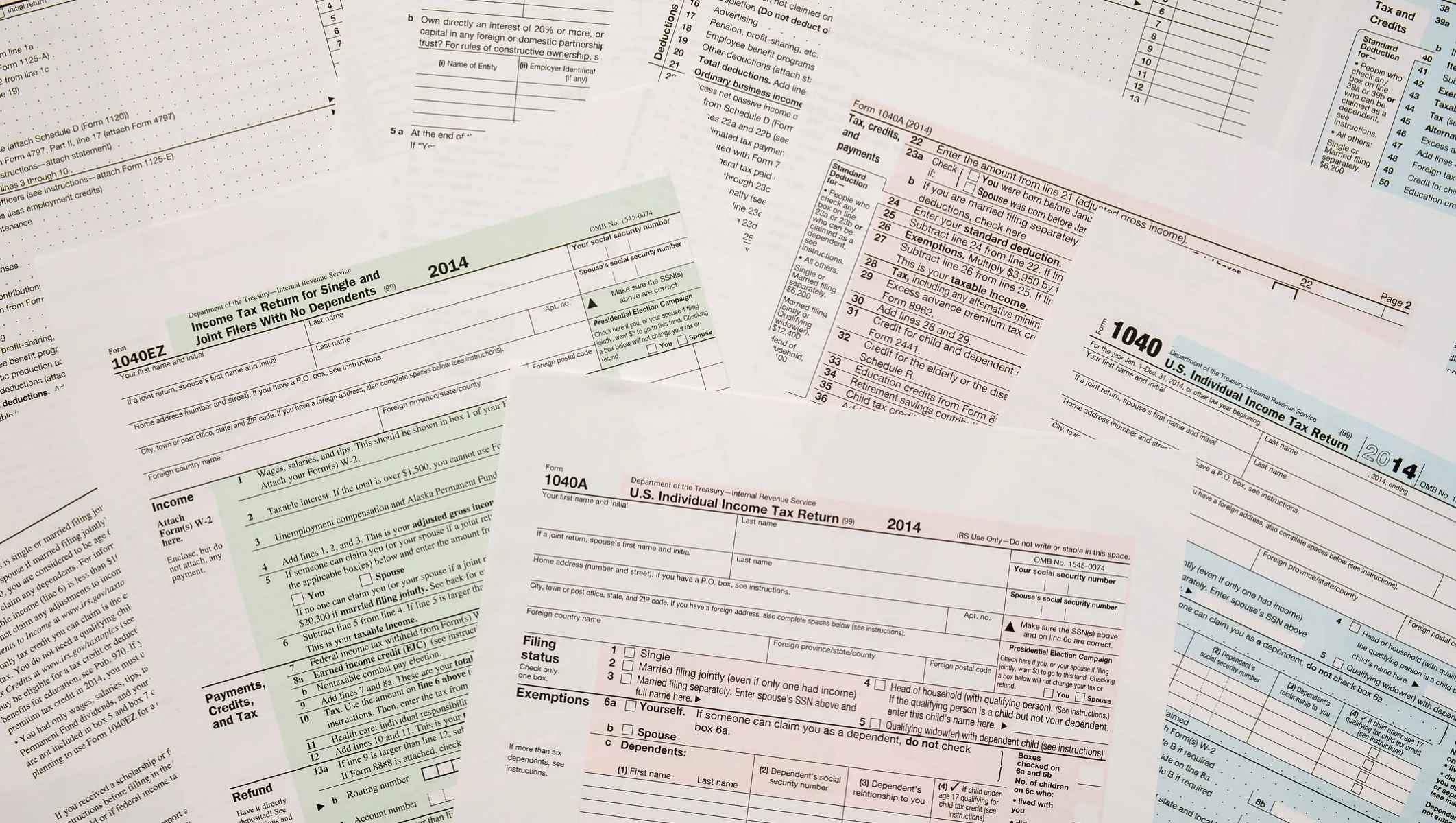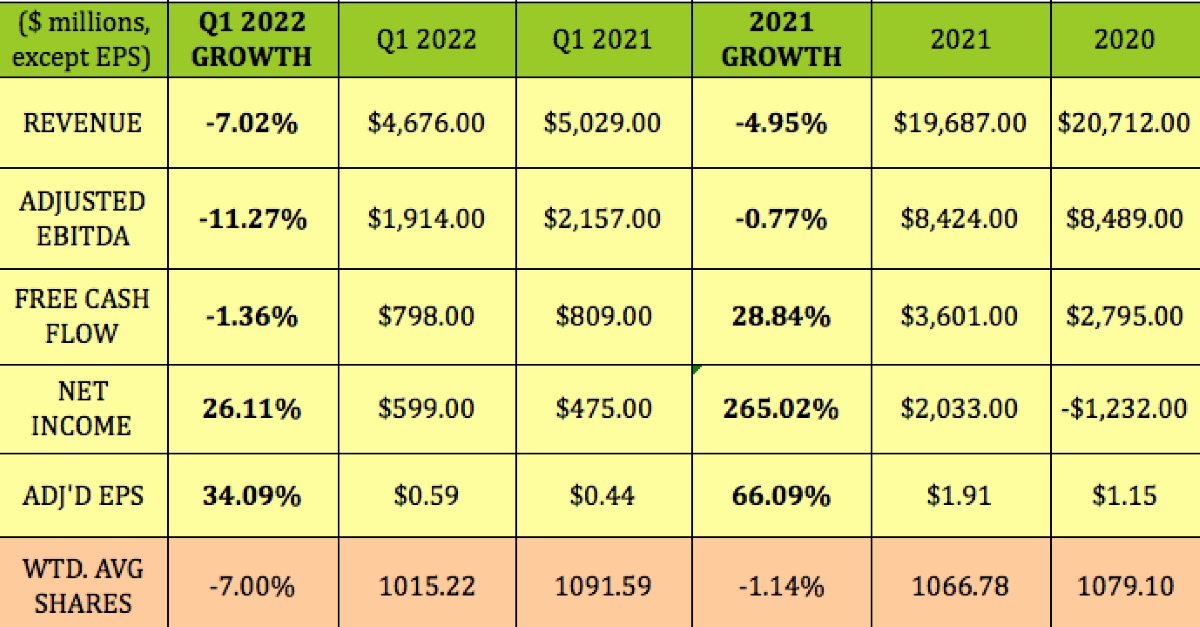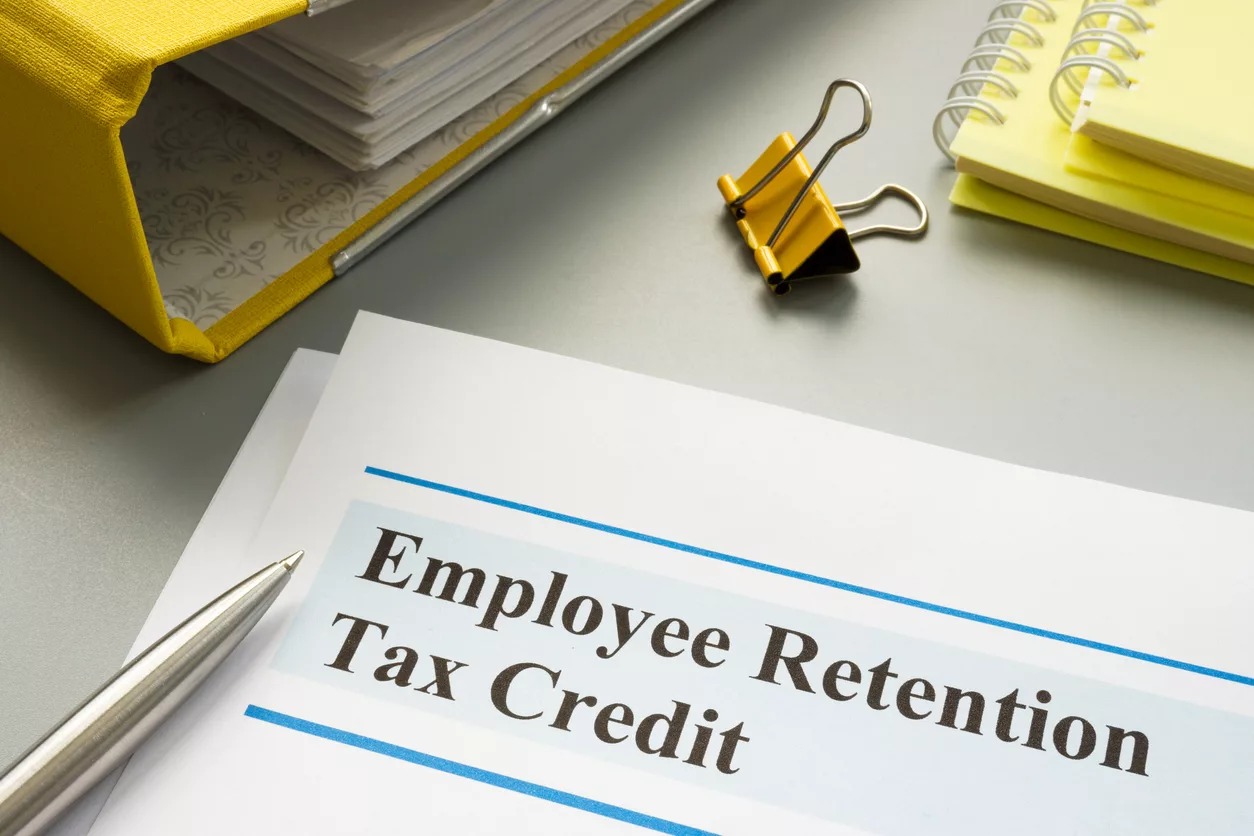

Finance
When Do I Need A 401K Audit
Modified: December 30, 2023
Learn about 401K audits and when you may need to undergo one. Understand the importance of financial compliance in managing your retirement savings.
(Many of the links in this article redirect to a specific reviewed product. Your purchase of these products through affiliate links helps to generate commission for LiveWell, at no extra cost. Learn more)
Table of Contents
- What is a 401K Audit?
- Understanding the Purpose of a 401K Audit
- Who Needs to Conduct a 401K Audit?
- When is a 401K Audit Required?
- The Benefits of Conducting a 401K Audit
- The Process of Conducting a 401K Audit
- Choosing an Auditor for Your 401K Audit
- Common Issues and Mistakes during a 401K Audit
- Avoiding Penalties and Compliance Issues with a 401K Audit
- Conclusion
What is a 401K Audit?
A 401K audit is a thorough examination of a company’s retirement plan to ensure compliance with the regulations set forth by the Internal Revenue Service (IRS) and the Department of Labor (DOL). This audit assesses the plan’s financial statements, internal controls, and administrative procedures to verify if they meet the standards outlined in the Employee Retirement Income Security Act (ERISA).
The purpose of a 401K audit is to protect the interests of plan participants and ensure that retirement plans are being managed in accordance with the law. During the audit, an independent auditor reviews the plan’s financial transactions, operational procedures, and adherence to legal requirements. This audit provides transparency and accountability, helping to detect any errors, discrepancies, or fraud that may have occurred.
401K audits are typically conducted by certified public accountants (CPAs) who possess the expertise and knowledge required to evaluate the plan’s financial records and assess the overall compliance. These auditors perform detailed tests and analytical procedures to determine the accuracy and completeness of financial statements and disclosures.
It is important to note that the requirement for a 401K audit may vary depending on the size of the plan and the number of eligible participants. To ensure compliance, it is crucial for plan administrators and employers to understand when a 401K audit is necessary and the potential benefits it can provide.
Understanding the Purpose of a 401K Audit
The purpose of a 401K audit goes beyond simply ensuring compliance with government regulations. It serves as a valuable tool for employers, plan administrators, and participants alike. Let’s delve into the key objectives of a 401K audit:
- Compliance with Legal Requirements: The primary purpose of a 401K audit is to verify that the retirement plan meets the rules and regulations mandated by the IRS and the DOL. This includes adherence to contribution limits, eligibility requirements, vesting schedules, plan documentation, and employee disclosures. By conducting an audit, companies can identify any potential violations or errors that may have occurred and rectify them promptly.
- Verification of Financial Statements: Another crucial aspect of a 401K audit is the examination of the plan’s financial statements. This involves scrutinizing the accuracy and completeness of the plan’s assets, liabilities, income, expenses, and investments. By ensuring the integrity of the financial statements, employers and plan participants gain confidence in the financial health and sustainability of the retirement plan.
- Identifying Operational Weaknesses: A 401K audit provides an opportunity to assess the efficiency and effectiveness of the plan’s internal controls and administrative procedures. This includes evaluating processes for participant enrollment, contribution processing, investment management, and recordkeeping. The audit helps to identify any operational weaknesses or gaps in controls, allowing for corrective actions to be implemented to improve the overall management of the plan.
- Detecting Fraud and Errors: One of the significant benefits of a 401K audit is its ability to detect fraudulent activities and errors. Through detailed examination and testing, auditors can uncover irregularities such as unauthorized transactions, misappropriation of funds, or accounting discrepancies. Detecting such issues early on is crucial for mitigating potential risks and preserving the retirement savings of participants.
- Protecting Plan Participants: Ultimately, the purpose of a 401K audit is to safeguard the interests of plan participants. By ensuring compliance with legal requirements, verifying the accuracy of financial statements, and identifying operational weaknesses or fraudulent activities, the audit helps protect the retirement savings of employees. It provides reassurance that the company is managing the plan responsibly and in accordance with industry best practices.
In summary, a 401K audit serves multiple purposes, including maintaining compliance with legal requirements, verifying financial statements, identifying operational weaknesses, detecting fraud and errors, and protecting the interests of plan participants. By conducting regular audits, employers, plan administrators, and participants can have confidence in the integrity and soundness of the retirement plan.
Who Needs to Conduct a 401K Audit?
The requirement for a 401K audit is dependent on the size of the plan and the number of eligible participants. The following categories of employers may need to conduct a 401K audit:
- Large Plans: Generally, if a company has 100 or more eligible participants at the beginning of the plan year, it is considered a large plan and is subject to a full-scale audit. Eligible participants include both active employees and former employees who still have a balance in the plan. Large plans must file a Form 5500 annually, along with the audited financial statements.
- Small Plans: On the other hand, companies with fewer than 100 eligible participants may be eligible for a limited-scope audit or may even be exempt from the audit requirement. A limited-scope audit focuses solely on the investment information and does not require a full examination of the plan’s financial statements. Small plans must still file a Form 5500 annually, but they may be able to attach a certificate of compliance in place of an audited financial statement.
- Voluntary Audits: Even if a plan does not meet the above-mentioned criteria for a mandatory audit, some employers may choose to conduct a voluntary audit. This can provide additional assurance to both the employer and the plan participants regarding the plan’s adherence to regulatory requirements and its financial integrity.
It’s important to note that the determination of whether a 401K audit is required is based on the number of eligible participants as of the beginning of the plan year. It is not based on the number of participants at the time of the audit. Plan administrators should consult with a qualified auditor or a knowledgeable professional to determine if an audit is necessary.
Failure to comply with the audit requirements can result in penalties and legal consequences. It is essential for employers to accurately determine their audit obligations and fulfill them within the specified timelines.
Overall, the responsibility for conducting a 401K audit falls on employers who meet the eligibility criteria based on the number of eligible participants in the plan. Employers must understand these requirements and take appropriate actions to ensure compliance with the regulations set forth by the IRS and the DOL.
When is a 401K Audit Required?
A 401K audit is required under certain circumstances, primarily based on the size of the plan and the number of eligible participants. The following scenarios outline when a 401K audit is typically required:
- Large Plans: If a 401K plan has 100 or more eligible participants at the beginning of the plan year, it is categorized as a large plan and must undergo a mandatory audit. Eligible participants include active employees and former employees with vested balances in the plan. The audit ensures compliance with regulatory requirements and provides assurance to both the employer and plan participants.
- 80-120 Rule: In certain situations, a plan may have between 80 and 120 eligible participants at the beginning of the plan year. Under this rule, the plan administrator has the option to file as a large plan or a small plan for that particular year. If the plan chooses to file as a small plan, it is exempt from the audit requirement, but if it chooses to file as a large plan, it must undergo a 401K audit.
- Trustee Directed Plans: Plans that meet specific requirements and are classified as “trustee-directed” may be exempt from the 401K audit requirement, regardless of the number of eligible participants. Trustee-directed plans have specific criteria regarding participant contributions, investment options, and fiduciary oversight.
- Change in Plan Status: If a plan goes from a small plan to a large plan or vice versa during the plan year, the audit requirements may change accordingly. For example, if a small plan exceeds 100 eligible participants during the year, it would need to undergo a 401K audit for that year.
It is worth noting that the determination of whether a 401K audit is required is based on the number of eligible participants at the beginning of the plan year. It is not influenced by the number of participants at the time of the audit. Plan administrators should consult with a qualified auditor or a knowledgeable professional to determine their audit obligations accurately.
Failure to comply with the audit requirements can result in penalties and potential legal issues. Employers and plan administrators must understand the regulations and stay updated on their audit obligations to ensure timely compliance.
In summary, a 401K audit is required for plans with 100 or more eligible participants at the beginning of the plan year. Additional rules exist for plans with 80-120 eligible participants, trustee-directed plans, and plans experiencing a change in status during the year. Understanding these requirements is crucial to ensure compliance with regulatory guidelines and avoid potential penalties.
The Benefits of Conducting a 401K Audit
Conducting a 401K audit offers several benefits for employers, plan administrators, and participants. Let’s explore the advantages of undergoing a thorough audit:
- Compliance: A 401K audit ensures that the retirement plan remains compliant with the regulations established by the IRS and the DOL. By verifying adherence to contribution limits, eligibility requirements, and other legal obligations, employers can avoid penalties and sanctions that may arise from non-compliance.
- Transparency and Accountability: An audit provides transparency and accountability by evaluating the plan’s financial transactions, internal controls, and administrative processes. This helps identify any errors, discrepancies, or potential fraudulent activities, promoting trust and confidence among plan participants and stakeholders.
- Enhanced Plan Governance: A comprehensive audit examines the plan’s internal controls and operational procedures, identifying areas for improvement. By addressing operational weaknesses and gaps, plan administrators can enhance the overall governance of the plan, ensuring efficient management and prudent fiduciary practices.
- Protection for Participants: Through a 401K audit, participants’ interests are safeguarded. The audit helps detect and prevent fraud, ensuring that participants’ contributions and investments are managed properly. This protection fosters confidence in the retirement plan and helps participants feel secure about their financial future.
- Early Detection of Issues: Conducting periodic audits allows for the early detection of potential issues or errors. By identifying and rectifying problems promptly, employers and plan administrators can mitigate risks and prevent them from escalating into more significant concerns that could impact plan participants.
- Audit as a Best Practice: While some employers may not be required to conduct a 401K audit, choosing to do so voluntarily can be considered a best practice. A voluntary audit demonstrates a commitment to sound financial stewardship and responsible plan management, instilling trust and confidence in both employees and regulatory authorities.
Overall, a 401K audit serves as a valuable tool to ensure compliance, promote transparency, enhance plan governance, protect participants, and detect and address issues early on. It contributes to the overall integrity and effectiveness of the retirement plan, ultimately benefiting both plan sponsors and participants alike.
The Process of Conducting a 401K Audit
The process of conducting a 401K audit involves several key steps to ensure a comprehensive and accurate evaluation of the retirement plan. Let’s explore the typical stages of a 401K audit:
- Engagement and Planning: This initial stage involves engaging an independent auditor who specializes in employee benefit plan audits. The auditor and the plan administrator discuss the scope of the audit, timelines, and expectations. The auditor gains an understanding of the plan’s structure, operations, and relevant documentation.
- Data Collection and Examination: The auditor requests various documents and information, such as the plan’s financial statements, summary plan descriptions, investment reports, employee census data, and contribution records. The auditor examines these documents to assess the accuracy, completeness, and compliance of the plan’s financial and operational activities.
- Testing and Analysis: The auditor performs detailed testing of key areas, such as employee contributions, plan investments, distributions, and compliance with legal requirements. This involves verifying the accuracy of financial transactions, comparing records with supporting documents, and assessing the appropriateness of internal controls in place.
- Documentation and Reporting: The auditor documents their findings and prepares the audit report. This report typically includes an opinion on the plan’s financial statements, a summary of the audit procedures performed, and any identified deficiencies or areas of improvement. The report is shared with the plan administrator and any necessary parties, such as regulatory authorities or stakeholders.
- Communication and Resolution: The audit report is reviewed with the plan administrator, highlighting any issues identified and recommendations for addressing them. The auditor and the plan administrator engage in discussions to address any concerns, correct errors, and implement improvements to the plan’s operations or internal controls.
- Compliance Filing: Once the audit is completed, the plan administrator submits the required filings, such as the Form 5500, along with the audited financial statements. This filing is typically due by the deadline set by the IRS and the DOL.
Throughout the entire process, the auditor maintains open communication with the plan administrator, addressing any questions and providing guidance on compliance with regulatory requirements. The auditor’s expertise and knowledge in employee benefit plan audits serve as a valuable resource for the plan administrator in ensuring the accuracy, integrity, and compliance of the 401K plan.
It’s important for plan administrators to engage a qualified and experienced auditor who is well-versed in 401K audits and understands the specific rules and regulations governing these plans. By following a thorough and systematic approach to the audit process, employers and plan administrators can fulfill their responsibilities and obligations while ensuring the overall compliance and integrity of the retirement plan.
Choosing an Auditor for Your 401K Audit
Choosing the right auditor for your 401K audit is a crucial decision that can impact the accuracy, efficiency, and effectiveness of the audit process. Consider the following factors when selecting an auditor:
- Experience and Expertise: Look for auditors who have extensive experience and specialized knowledge in conducting employee benefit plan audits, particularly 401K audits. They should possess a deep understanding of the applicable regulations and auditing standards specific to retirement plans.
- Credentials and Certifications: Ensure that the auditor holds relevant credentials and certifications, such as Certified Public Accountant (CPA) or specialized certifications like Certified Employee Benefits Specialist (CEBS). These designations demonstrate the auditor’s dedication to staying current with industry standards and best practices.
- Reputation and References: Research the auditor’s reputation in the industry and seek references from other organizations that have worked with them. Consider their track record in conducting audits and their level of client satisfaction. Online reviews and recommendations can also provide valuable insights into the quality of their services.
- Resources and Team: Assess the auditor’s resources and team capabilities. A well-equipped and experienced team can handle the complexity of a 401K audit efficiently. Inquire about their staffing levels, expertise in relevant areas such as compliance and internal controls, and their ability to meet the deadlines set by regulatory authorities.
- Communication and Collaboration: Effective communication and collaboration are essential for a successful audit process. Evaluate how responsive and accessible the auditor is and how effectively they can communicate complex financial and regulatory matters. A strong working relationship with the auditor based on trust and open communication is key to a smooth and effective audit experience.
- Cost and Value: Consider the auditor’s fees and how they align with the value and quality of their services. While cost is an important factor, it should not be the sole determining factor. Ensure that the auditor’s fee structure is transparent and that you have a clear understanding of what is included in their services.
It is recommended to conduct interviews or meetings with potential auditors to evaluate their suitability for your specific needs. Discuss your expectations, timelines, and any unique circumstances related to your retirement plan. This will allow you to gauge their level of understanding, responsiveness, and alignment with your organization’s values and objectives.
Ultimately, selecting an auditor for your 401K audit requires careful consideration. By choosing a qualified and experienced auditor who is a good fit for your organization’s needs, you can ensure a successful audit process that meets regulatory requirements and provides valuable insights for the enhancement of your retirement plan.
Common Issues and Mistakes during a 401K Audit
Although a 401K audit is an important process to ensure compliance and accuracy, there are several common issues and mistakes that can arise. Being aware of these pitfalls can help employers and plan administrators navigate the audit process more effectively. Here are some of the most common issues encountered during a 401K audit:
- Inadequate Documentation: Insufficient documentation is a common issue that can hinder the smooth completion of a 401K audit. This includes missing participant records, incomplete contribution documentation, and inadequate recordkeeping of plan transactions. Plan administrators must ensure that all necessary documents, such as enrollment forms, contribution records, and investment activity documentation, are properly maintained.
- Late or Missing Filings: Failing to meet the deadlines for submitting the required filings, such as the Form 5500, is a significant mistake. Late or missing filings can result in penalties and regulatory consequences. It is essential to have a well-organized system in place to track deadlines and ensure timely and accurate filing of necessary documents.
- Incorrect Valuations: Accurate valuation of plan assets is crucial for the integrity and compliance of a 401K plan. Incorrectly valuing investments or failing to obtain adequate independent appraisals can lead to substantial errors in the financial statements. Plan administrators should work closely with auditors and investment professionals to ensure proper valuation methods are followed.
- Failure to Monitor Service Providers: Plan administrators have a fiduciary duty to monitor the performance and compliance of service providers, such as third-party administrators and investment custodians. Failure to conduct due diligence, periodic reviews, and monitoring of service providers can lead to compliance issues and inadequate plan management.
- Prohibited Transactions: Engaging in prohibited transactions, such as self-dealing or using plan assets for personal gain, is a serious violation. Plan administrators must be vigilant in identifying and preventing any transactions that may violate the rules set by the IRS and the DOL.
- Improper Internal Controls: Weak internal controls can increase the risk of errors, fraud, and non-compliance. Insufficient segregation of duties, lack of proper review processes, and inadequate oversight can undermine the effectiveness and accuracy of the 401K plan. It is essential to establish robust internal controls to safeguard plan assets and ensure compliance with regulatory requirements.
To avoid these common issues and mistakes during a 401K audit, plan administrators should establish strong recordkeeping and documentation practices, adhere to filing deadlines, properly value plan assets, monitor service providers diligently, avoid prohibited transactions, and implement robust internal controls.
Working closely with experienced auditors and seeking guidance from professionals knowledgeable in retirement plan regulations can help plan administrators navigate the complexities of a 401K audit and ensure a smooth and successful audit process.
Avoiding Penalties and Compliance Issues with a 401K Audit
Conducting a 401K audit is essential for ensuring compliance with regulatory requirements and maintaining the integrity of the retirement plan. Failing to adhere to these requirements can result in penalties and other compliance issues. Here are some key steps to avoid penalties and ensure a smooth 401K audit:
- Stay Updated with Regulations: It is crucial for plan administrators to stay informed about the latest regulations and compliance requirements related to 401K plans. Regularly review updates from the IRS and the DOL to ensure that the plan remains updated and in compliance with the changing rules.
- Engage a Qualified Auditor: Choosing a qualified and experienced auditor who specializes in employee benefit plan audits is critical. An experienced auditor will possess the knowledge and expertise required to conduct a thorough examination of the plan’s financial records, internal controls, and compliance with regulations. This helps mitigate the risk of compliance issues and penalties.
- Maintain Accurate and Complete Documentation: Proper documentation is essential for a successful 401K audit. Keep detailed records of participant contributions, distributions, investment activities, and other plan transactions. Ensure that all documentation is accurate, up-to-date, and readily accessible for the auditor’s review.
- Adhere to Filing Deadlines: Late or missed filing deadlines can result in penalties and compliance issues. Establish a system to track filing deadlines and ensure that all required forms and reports, such as the Form 5500, are filed accurately and on time. Consider utilizing electronic filing options for greater efficiency.
- Implement Robust Internal Controls: Implementing strong internal controls is crucial for maintaining compliance and preventing fraud. Establish appropriate segregation of duties, perform regular reviews of processes and procedures, and maintain effective oversight of plan activities. This helps identify and address any compliance issues or irregularities proactively.
- Monitor Service Providers Closely: Regularly review and assess the performance and compliance of service providers, such as third-party administrators and investment custodians. Ensure that they are fulfilling their contractual obligations and meeting regulatory requirements. Promptly address any issues or concerns that arise during the audit or throughout the year.
- Address Audit Findings Promptly: If the auditor identifies any deficiencies or areas for improvement during the audit, take prompt action to address them. Collaborate with the auditor to understand the findings and recommendations and implement necessary changes to ensure ongoing compliance and accuracy of the plan.
By following these steps, plan administrators can minimize the risk of penalties and compliance issues during a 401K audit. Maintaining compliance with regulatory requirements not only protects the plan and participants but also helps maintain the trust and confidence of employees in the retirement benefits provided by the plan.
Working closely with a qualified auditor and seeking expert advice can provide valuable guidance to navigate the complexities of a 401K audit and ensure a successful outcome that is in compliance with regulatory obligations.
Conclusion
A 401K audit is a vital process that helps ensure the compliance, accuracy, and integrity of a company’s retirement plan. By conducting a thorough examination of the plan’s financial statements, internal controls, and adherence to regulatory requirements, employers and plan administrators can protect the interests of plan participants while avoiding penalties and compliance issues.
Throughout this article, we have explored various aspects of a 401K audit, including its purpose, requirements, benefits, and the common issues and mistakes that can arise during the audit process. We have also discussed the importance of choosing a qualified auditor and implementing best practices to avoid penalties and ensure a successful audit outcome.
It is crucial for employers and plan administrators to prioritize compliance and stay up-to-date with changing regulations. Regular audits, whether mandatory or voluntary, provide transparency and accountability, helping to identify and rectify errors, detect fraud, and improve the overall management of the retirement plan.
By maintaining accurate and complete documentation, adhering to filing deadlines, implementing robust internal controls, and monitoring service providers diligently, employers can minimize risks and demonstrate their commitment to responsible plan management. Engaging a qualified auditor with expertise in employee benefit plan audits further enhances the accuracy and effectiveness of the audit process.
In conclusion, a well-executed 401K audit is essential for ensuring regulatory compliance, protecting plan participants, and maintaining the trust and confidence of employees. By understanding the requirements, addressing potential issues, and implementing best practices, employers can navigate the audit process successfully and ensure the long-term success of their 401K plans.














